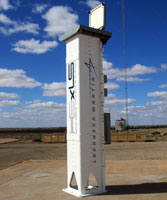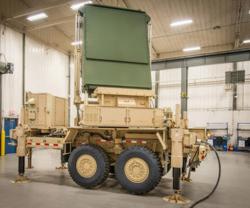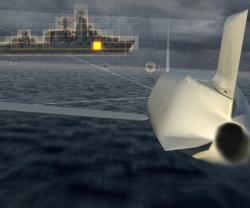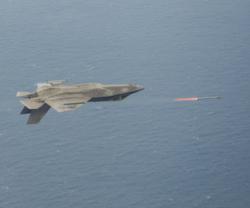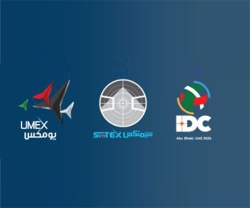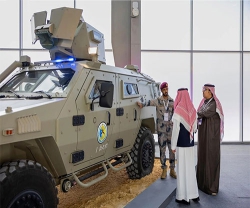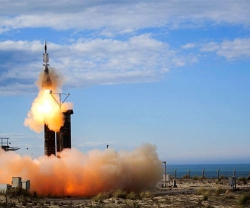LM Demonstrates New Standalone Launching System
17.05.2012 North America
Lockheed Martin successfully demonstrated the latest variant of its new launching system that maximizes the use of existing hardware and electronics to reduce the integration costs of weapons by more than 50%.
During a May 5 test at the Royal Australian Air Force’s Woomera Test Range in South Australia, the new Extensible Launching System (ExLS) standalone variant successfully fired two Nulka Offboard Countermeasure missile decoy test rounds. One decoy was provided by the U.S. Navy and the other by the Nulka designer and manufacturer BAE Systems Australia.
Developed in just 10 months, the new ExLS variant offers an alternative for vertically launched weapons on surface ships that aren’t equipped with a vertical launching system (VLS), such as a MK 41 or MK 57. The ExLS standalone variant is ideally suited for smaller vessel classes.
Installed below deck, the new launcher significantly reduces the integration costs for individual weapons by serving as an adapter between the canister of a missile or munition and its qualified electronics, and the ship’s existing weapons system.
“As initially envisioned, Lockheed Martin’s original ExLS worked with ships equipped with either MK 41 or MK 57 Vertical Launch Systems, and we saw an opportunity expand the capability,” said Colleen Arthur, Director of Integrated Defense Systems for Lockheed Martin's Mission System & Sensors business.
“With new standalone ExLS configuration, ships do not have to be equipped with a larger vertical launching system and can quickly and affordably adapt to different types of munitions,” she added.
The test in Australia also successfully demonstrated the system’s Nulka munition adapter - a unique feature that enables the missile decoy to quickly and cost-effectively be inserted into ExLS. Adapters can also be developed for other missiles and munitions.
Work on the ExLS standalone launcher is done at Lockheed Martin’s Baltimore, Maryland, facility.
During a May 5 test at the Royal Australian Air Force’s Woomera Test Range in South Australia, the new Extensible Launching System (ExLS) standalone variant successfully fired two Nulka Offboard Countermeasure missile decoy test rounds. One decoy was provided by the U.S. Navy and the other by the Nulka designer and manufacturer BAE Systems Australia.
Developed in just 10 months, the new ExLS variant offers an alternative for vertically launched weapons on surface ships that aren’t equipped with a vertical launching system (VLS), such as a MK 41 or MK 57. The ExLS standalone variant is ideally suited for smaller vessel classes.
Installed below deck, the new launcher significantly reduces the integration costs for individual weapons by serving as an adapter between the canister of a missile or munition and its qualified electronics, and the ship’s existing weapons system.
“As initially envisioned, Lockheed Martin’s original ExLS worked with ships equipped with either MK 41 or MK 57 Vertical Launch Systems, and we saw an opportunity expand the capability,” said Colleen Arthur, Director of Integrated Defense Systems for Lockheed Martin's Mission System & Sensors business.
“With new standalone ExLS configuration, ships do not have to be equipped with a larger vertical launching system and can quickly and affordably adapt to different types of munitions,” she added.
The test in Australia also successfully demonstrated the system’s Nulka munition adapter - a unique feature that enables the missile decoy to quickly and cost-effectively be inserted into ExLS. Adapters can also be developed for other missiles and munitions.
Work on the ExLS standalone launcher is done at Lockheed Martin’s Baltimore, Maryland, facility.
Previous PostGeneral Dynamics’ New Medium-Caliber Machine Gun
Latest news
Latest events
Doha International Maritime Defence Exhibition & Conference (DIMDEX 2026)
19 - 22 Jan 2026Doha - QatarUMEX – SimTEX
20 - 22 Jan 2026ADNEC Centre Abu Dhabi, - United Arab EmiratesWorld Defense Show (WDS) 2026
08 - 12 Feb 2026Riyadh - Saudi ArabiaSAHA EXPO International Defence & Aerospace Exhibition
05 - 09 May 2026İstanbul Expo Center - Turkey

